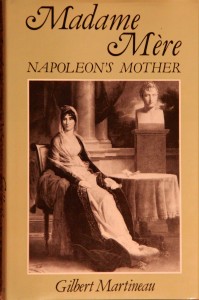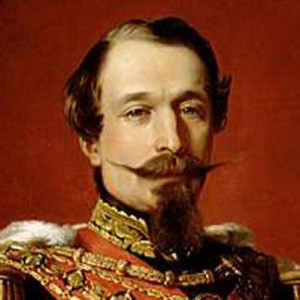 As I wrote in an earlier post, the Corsican assembly, in 1793, voted unanimously “to inflict on the individuals making up [the family] Bonaparte an eternal brand that renders their name and their memory detestable to [all Corsican] patriots.” Six years later, however, during a stopover on Napoleon’s return from the Egyptian campaign, the Corsicans welcomed him as a hero.
As I wrote in an earlier post, the Corsican assembly, in 1793, voted unanimously “to inflict on the individuals making up [the family] Bonaparte an eternal brand that renders their name and their memory detestable to [all Corsican] patriots.” Six years later, however, during a stopover on Napoleon’s return from the Egyptian campaign, the Corsicans welcomed him as a hero.
France, too, banned the Bonaparte clan. In 1815, following the defeat at Waterloo and Napoleon’s second abdication, the French assembly, in support of the restored Bourbon King Louis XVIII, issued the following order:
“The ancestors and descendants of Napoleon Buonaparte, his uncles and aunts, nephews and nieces, brothers, their wives and children, his sisters and their husbands are excluded from the Kingdom in perpetuity, and are directed to leave it within a month, under pain of the penalty detailed in article 91 of the Penal Code [which included death].”*
 When the French ban went into effect, Napoleon was a captive of the British, his brother Joseph was on his way to America, and his son was in Austrian hands. Madame Mère and her brother Cardinal Fesch were en route to Rome. The rest of the family scattered across Europe.
When the French ban went into effect, Napoleon was a captive of the British, his brother Joseph was on his way to America, and his son was in Austrian hands. Madame Mère and her brother Cardinal Fesch were en route to Rome. The rest of the family scattered across Europe.
But this “perpetual” ban, like Corsica’s “eternal” one, was short-lived. In fact, its proposer, the Comte de Corbière lived to see Napoleon’s nephew crowned as Emperor Napoleon III in 1852.
* Quoted from Madame Mère Napoleon’s Mother, by Gilbert Martineau, John Murray Publishers, London, 1978

Pingback: Finding Napoleon Bonaparte in Baltimore - Finding Napoleon
Pingback: Family Legends about Napoleon - Margaret Rodenberg